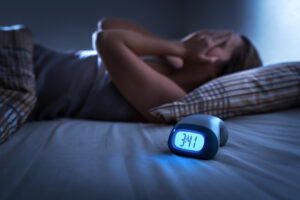 What Types of Sleep Disorders Are Commonly Associated with TBI? What Are the Symptoms? How Can They Be Treated?
What Types of Sleep Disorders Are Commonly Associated with TBI? What Are the Symptoms? How Can They Be Treated?
After a head injury, you may experience changes in your sleep patterns. This article details the changes, symptoms, and possible treatments for sleep disorders caused by a traumatic brain injury (TBI).
What Are the Common Sleep Disorders Related to TBI?
As a general rule, most changes in sleep patterns and sleeping habits after a TBI involve either insomnia or hypersomnia:
- Insomnia—The inability to sleep, also known as insomnia, can have various underlying causes. Your injuries may make it challenging to find a comfortable sleeping position, or chronic pain may hinder your ability to sleep. Additionally, conditions such as anxiety, depression, or post-traumatic stress disorder (PTSD) can disrupt sleep patterns.
- Hypersomnia—In contrast, hypersomnia is characterized by difficulty staying awake. You may frequently nap during the day, oversleep despite alarms, or be inclined to go to bed early and wake up late. Research suggests that up to two-thirds of individuals who experience a TBI report excessive fatigue and hypersomnia.
Other sleep disorders that occasionally arise after a TBI include:
- Sleep apnea, characterized by difficulty breathing during sleep;
- Narcolepsy, which involves a persistent feeling of drowsiness during waking hours; and
- Sleepwalking, where individuals get up and move around while not fully awake.
Can TBI-Related Sleep Disorders Be Treated?
Medical professionals have several effective tools to address sleep disorders stemming from a TBI:
- Behavioral therapy has proven successful in reducing both insomnia and hypersomnia.
- Some medications, like anti-depressants, can help treat TBI-related sleep issues.
- Lifestyle choices play a significant role:
- Maintain a consistent sleep schedule.
- Limit the consumption of caffeine, alcohol, or drugs, including nicotine.
- Include moderate exercise in your daily routine.
- Avoid naps during the day.
- Reserve your bedroom solely for sleep—no television or reading in bed.
Contact a Specialist to Learn More About Recovery from TBI-Related Sleep Disorders
Seeking relief from sleep disorders caused by TBI? Find a specialist using Injured Care’s medical directory, and begin your journey to better sleep and well-being today. Visit InjuredCare.com or call us at 817-359-7077 for assistance.

